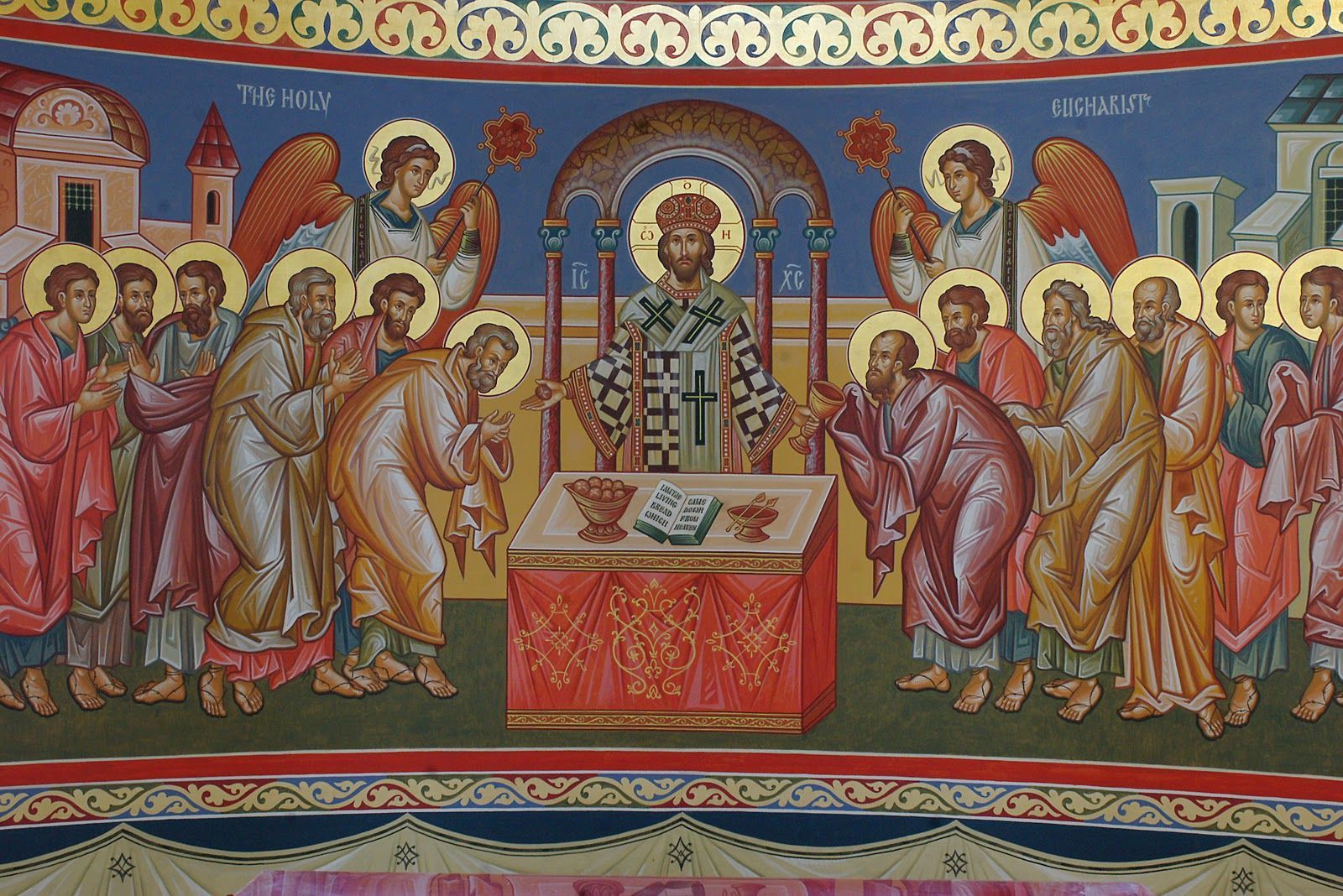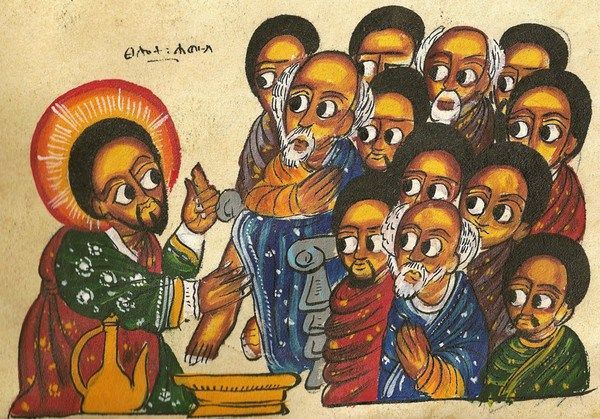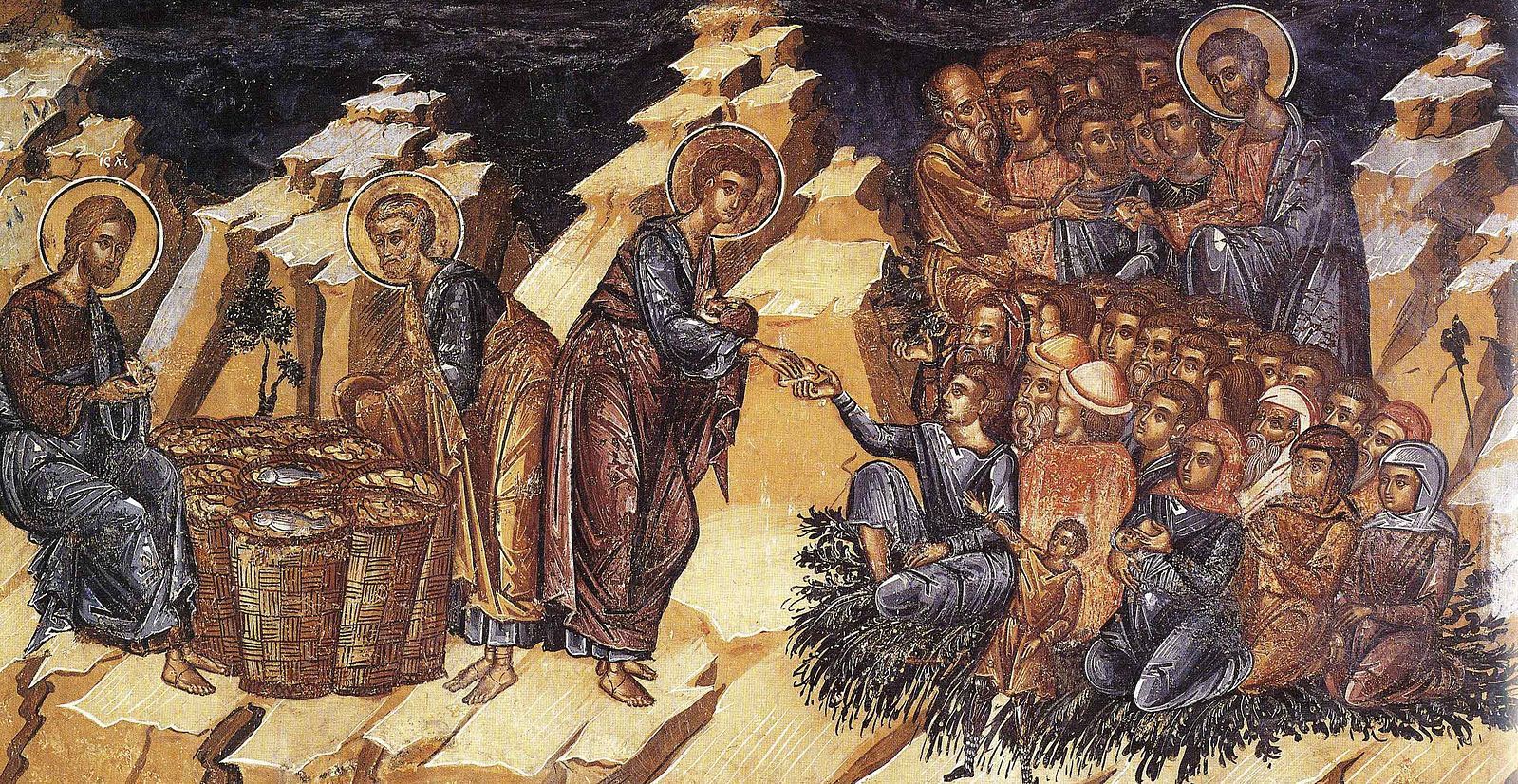Message of Abbot Paul - Friday - 12th April 2024
Abbot Paul • April 11, 2024
Today’s Gospel passage is John’s version of the Feeding of the Five Thousand, (Jn 6: 1-15). It begins, “Jesus went off to the other side of the Sea of Galilee – or of Tiberias – and a large crowd followed him, impressed by the signs he gave by curing the sick. Jesus climbed the hillside, and sat down there with his disciples. It was shortly before the Jewish feast of Passover.” By this stage of his ministry, large crowds seem to follow him everywhere and it is to this deserted hillside that they follow him now. In John’s version of this miracle or sign, there are a number of interesting details. “Looking up, Jesus saw the crowds approaching and said to Philip, ‘Where can we buy some bread for these people to eat?’ He only said this to test Philip; he himself knew exactly what he was going to do. Philip answered, ‘Two hundred denarii would only buy enough to give them a small piece each.’” In John, the disciples might not know or understand what Jesus has in mind to do, but Jesus is always in control of the situation. He tests his disciples, in this case Philip. Where would they buy bread for so many in a place like this? There were times when grain was short and no bread available, There were no supermarkets or corner shops in Jesus’ day. When we think of the five loaves and two fish, we invariably think of the small boy who came forward and offered them to Jesus. Only in John do we find this moving detail. I wonder what his name was. “One of his disciples, Andrew, Simon Peter’s brother, said, ‘There is a small boy here with five barley loaves and two fish; but what is that between so many?’” Rather like the widow who put her mite, all she had, into the Temple collection box, Jesus appreciates and works wonders with this small boy’s gift. He invites us to follow their example and not to be ashamed of the smallness of our gifts to him or to our neighbour. It is the thought and the sacrifice that counts. God will do the rest.
“Jesus said to them, ‘Make the people sit down.’ There was plenty of grass there, and as many as five thousand men sat down. Then Jesus took the loaves, gave thanks, and gave them out to all who were sitting ready; he then did the same with the fish, giving out as much as was wanted.” The miracles are like parables: there’s a touch of exaggeration to focus on what is truly important. They tell us who Jesus is. Was this the only lad who had brought food with him? Surely there were others. What about the men? And were there no women? If the men alone counted about five thousand, how many people were there altogether? We can hazard a guess, but we’ll never know. What we do know is that they were all fed by Jesus, who took the bread, gave thanks and then distributed it. The words are eucharistic and, in John, this miracle will lead to the discourse on the Bread of Life. So precious is God’s gift to us in Jesus, that nothing must be lost or thrown away. “When they had eaten enough, he said to the disciples, ‘Pick up the pieces left over, so that nothing gets wasted.’ So they picked them up, and filled twelve hampers with scraps left over from the meal of five barley loaves.” If the scraps alone can fill twelve hampers, then we can imagine the abundance of food derived from the boy’s offering of five loaves and two fish. No indication is given as to what was done with the scraps. No doubt they were treasured and eaten later. They also serve to show just how generous God is, he who so loved the world as to give his only Son that whoever believes in him should not be lost but have eternal life.
What is the reaction of the crowd? “The people, seeing this sign that he had given, said, ‘This really is the prophet who is to come into the world.’ Jesus, who could see they were about to come and take him by force and make him king, escaped back to the hills by himself.” The prophet would be the Messiah promised from of old and for these people at this time, it would be a political messiah that they were hoping for, hence the suggestion that they are planning to take Jesus by force and make him king. Jesus has to escape and goes off alone further into the hills. Today’s gospel passage beggars the question, “What sort of messiah do I want Jesus to be?” A difficult one to leave you with.












